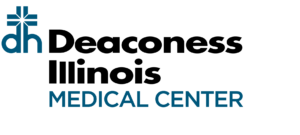American Heart Month: A Fresh Start for a Healthy Heart
Every February, the United States recognizes American Heart Month to raise awareness about heart health. This year, the Division for Heart Disease and Stroke Prevention is focusing on hypertension, or high blood pressure, which is a leading risk factor for heart disease and stroke.
High blood pressure affects nearly one-third of American adults aged 18 or older, or 67 million people. People with high blood pressure usually do not have any warning signs or symptoms. According to the National Health and Nutrition Examination Survey, 14.1 million Americans are unaware that they have hypertension.
According to family medicine specialist, Shari Parr, PA-C, measuring your blood pressure is the only way to know whether you have high blood pressure. “Routine visits with your primary care doctor and knowing your blood pressure numbers are crucial,” Parr said.
Fortunately, people can take steps each day to keep their blood pressure in a healthy range:
Eat a Healthy Diet
A recent study in the Journal of the American College of Cardiology found that consuming sugary drinks, red and processed meat, and refined carbohydrates made people 38% more likely to develop cardiovascular disease. Instead, people should focus on a diet with more fiber and antioxidants, such as leafy greens, fruit, whole grains, tea and coffee.
Maintain a Healthy Weight
Being overweight increases your risk for high blood pressure. “Talk to your doctor to identify your body mass index and determine if you are at a healthy weight,” Parr said. “Although these lifestyle changes may help, those with hypertension generally require one or more medications to lower their blood pressure.”
Schedule Physical Activity
The pandemic has changed activity routines for many. Scheduling exercise and maintaining a routine will help people stay active in the coming months. Physical activity can help keep you at a healthy weight and lower your blood pressure. The Physical Activity Guidelines for Americans recommends that adults get at least two hours and 30 minutes of moderate-intensity exercise, such as brisk walking or bicycling, every week.
Quit Smoking
Smoking raises your blood pressure and puts you at higher risk for heart attack and stroke. Talk to your doctor about ways to help you quit if this is an issue.
Limit Alcohol Intake
Drinking alcohol raises blood pressure. According to the Centers for Disease Control and Prevention (CDC), men should have no more than two alcoholic drinks per day, and women should have no more than one alcoholic drink per day.
Get More Sleep
If you are tossing and turning regularly, you may be at risk of heart disease, high blood pressure and stroke. Getting sufficient sleep helps keep your heart and blood vessels healthy.
According to Parr, there are plenty of heart health resources available at your primary care provider’s office. She said, “You can also talk to your doctor about your risk factors and establish a plan to adopt healthy behaviors to limit and reduce your risk of developing hypertension in the future.”
Sherri Parr is a PA-C at Heartland Regional Medical Group – Family Medicine.
